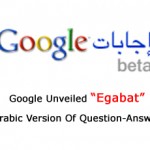 Brussels — In a move to appease European publishers’ concerns over book digitization, Internet search giant Google Inc. on Monday said it will pull out all European books that are still listed as commercially available from a $125 million U.S. settlement with publishers to scan orphaned and out-of-print books in the U.S. and sell them online.
Brussels — In a move to appease European publishers’ concerns over book digitization, Internet search giant Google Inc. on Monday said it will pull out all European books that are still listed as commercially available from a $125 million U.S. settlement with publishers to scan orphaned and out-of-print books in the U.S. and sell them online.
As the European Union evaluates a U.S. deal between Google and publishers, the company offered concessions that is aimed to pacify the concerns its book digitization project has raised in Europe.
U.S. publishers sued Google for disrespecting their copyright when the company started digitizing books. They then reached a revenue-sharing settlement covering books that are still copyright-protected, ones whose copyright has expired, as well as the huge number of books that are technically still protected but have fallen out of print and where the copyright owner cannot be located.
The concessions to European publishers reached amid controversial plans to mollify the concerns of European authors and publishers, who do not want the search giant to scan books by European authors, which represent a “big landgrab” of the world’s stock of up to nine million out-of-print and out-of-copyright books, without rights holders give their express authorization.
Previously, European rights holders whose books were already out of print, or had never been published in the U.S. were considered to have “opted in by scanning process doing nothing,” according to British trade magazine The Bookseller’s managing editor, Philip Jones, and Anne Bergman from the Federation of European Publishers.
The search giant also stated that it will allow two non-U.S. representatives onto the eight-person board of the Books Rights Registry, which was constituted to regulate the proposed books settlement reached with U.S. publishers and authors who sued Google in 2005. Plaintiffs alleged that the company’s digitizing initiative amounted to “massive” copyright infringement.
Under the terms of the settlement, Google agreed to pay the authors and publishers $125 million. The company will also be responsible for selling access to copyrighted works in its repository. Most of the revenues from such access would go to the authors and publishers.
Google has digitized millions of books already, which Jones says “people have described as a big landgrab.” He stressed: “Publishers still want to see more clarity.”
Google, which counts around three million titles potentially in play outside the US, must instead negotiate agreements with European publishers and authors.
“Books that are commercially available in Europe will be treated as commercially available under the settlement,” Google said in a statement.
“Such books can only be displayed to US users if expressly authorized by rights holders,” it added, as hearings got under way in Brussels on Monday to determine the European Union’s response to the US deal.
The company also promised to bring a European publisher and a European author onto its board.
Angela Mills Wade, executive director of the European Publishers Council, said the definition of “commercially available” remained a problem area for some members.
She said: “If a copy of an English-language book published in Europe finds its way to a US library, Google could scan it even if the rights have not been sold in the US market, possibly harming the publisher’s own opportunities to sell those rights.”
“It is a step in the right direction, but it is not enough for our members to sleep peacefully,” said Jessica Saenger of the German booksellers association.
Resistance to the U.S. deal is strong among some politicians, libraries and publishers, particularly in Germany and France.
Five organizations representing E.U. publishers, libraries, rights holders and businesses active in Internet commerce told the European Commission at a hearing on Monday that the proposed U.S. Google book settlement is unacceptable in its present form, because it would lead to “a de facto monopoly” in the emerging digital books market.
“We should not let a single U.S. entity dictate an international model of rights recording,” said Peter Brantley of the Internet Archive and Open Book Alliance, one of the five organizations.
The U.S. settlement between Google and U.S. publishers, which is still under scrutiny by a New York court, was the subject of a one-day hearing hosted by the European Commission Monday.
Many supporters of Google’s U.S. book digitization project in Europe, including some Commission officials and public libraries, want the E.U. to strike a similar deal to the U.S. Settlement.
Google Book Engineering director Dan Clancy said demand for out-of-print books amounts to three percent of total book sales, and that 30,000 rights holders have opted-in.
In response to criticism his organization is seeking a monopoly, Clancy said the Book Rights Registry “can and will license works to other proprietors.”


